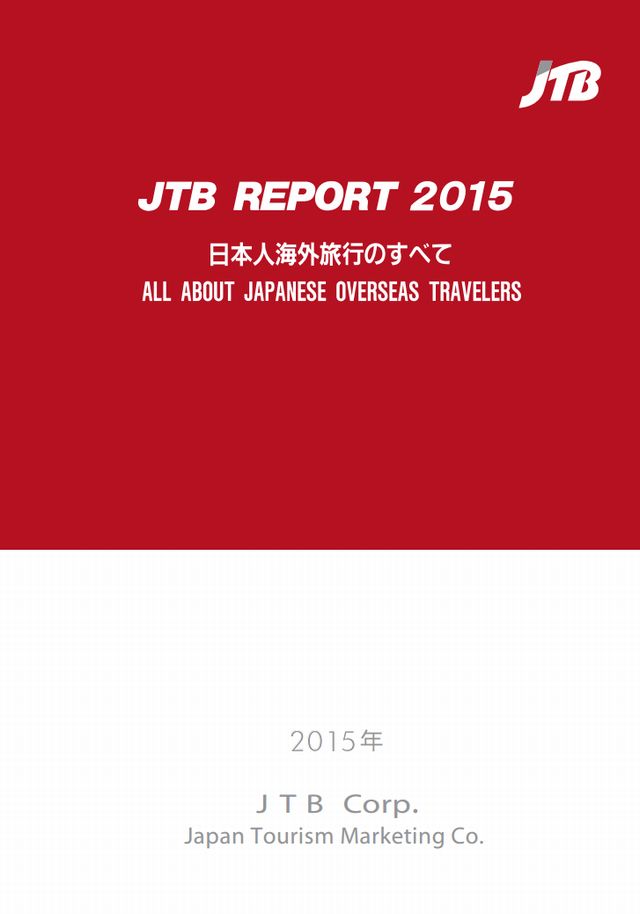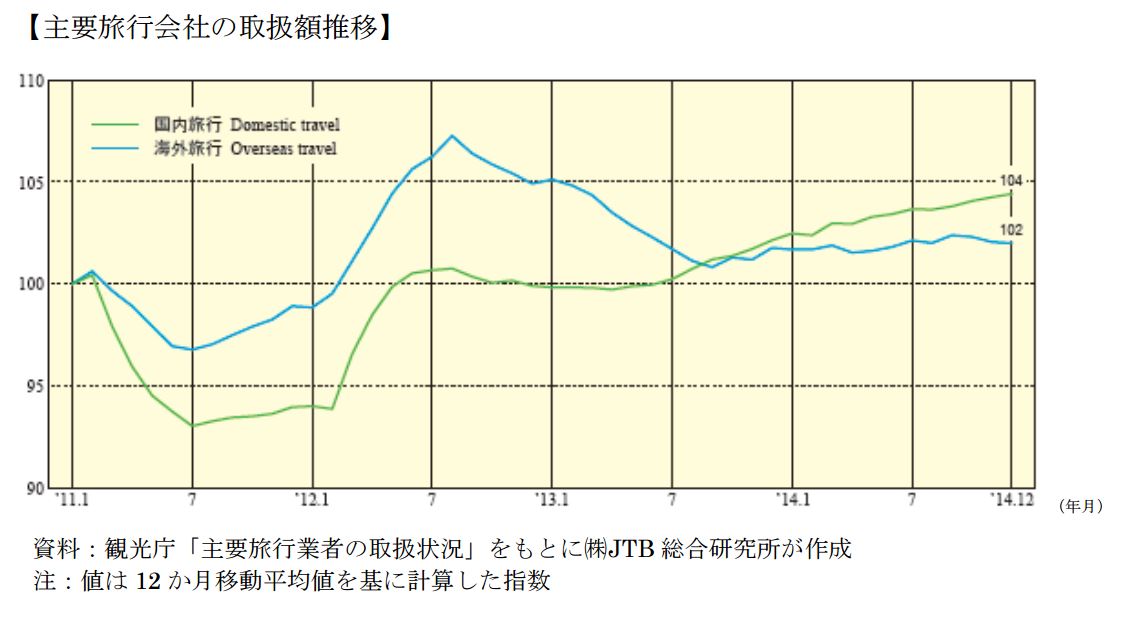
JTB Report 2015, which summarizes the market trend of Japanese overseas travel in 2014, shows that major travel companies’ businesses were overall steady through 2014, as consumer mind for spending in travel was positive although rise of the consumption tax rate in April 2014 had affected the entire travel market.
For overseas travel, travelers were down 3.3% year on year in 2014, but sales of major travel companies were almost unchanged as a whole. The report says that the main reasons for the reduction of Japanese overseas travelers were acceleration of weak yen since the middle of 2014, high fuel surcharges through 2014 and higher unit prices of overseas travel products due to rise of land costs including local hotels under the weak yen condition and growth of the international tourism market.
In comparison of the departure rates by sex and age, the departure rate of late 20’s female travelers outstandingly reduced for realistic reasons, such as weak yen or high fuel surcharges, rather than psychological reasons, such as terror, disaster or infection. Destination-wise, travelers to Europe reduced mainly because of anxieties about terrorist attacks and Ebola hemorrhagic fever.
On the contrary, foreign travelers to Japan grew by double-digit for two years in a row. Deficit in balance of international travel payments deducting spending in foreign countries by Japanese travelers from spending in Japan by foreign travelers shrank to 70 billion JPN in 2014, and it is expected to move into the black in 2015. At the same time, JTB Report says that inbound travelers to Japan will outnumber outbound travelers from Japan in 2015.

The ratio of Japanese leisure FIT reached 56.5% of the total in the overseas travel market, representing the first over 50%, in accordance with the reality that online booking becomes more and more common in Japan. Also, the FIT ratio was probably affected by reduction of travelers for Europe, which is the destination with the high rate of package tour, according to the report.
JTB has forecasted that the travel market including travel in Japan will grow well in the future, partially helped by better economic condition including rise of wages. Although consumer mind to travel is expected to be positive in 2016 as well, the overseas travel market may depend on recovery of travelers for China and Korea and air seat availability.
In Japanese



